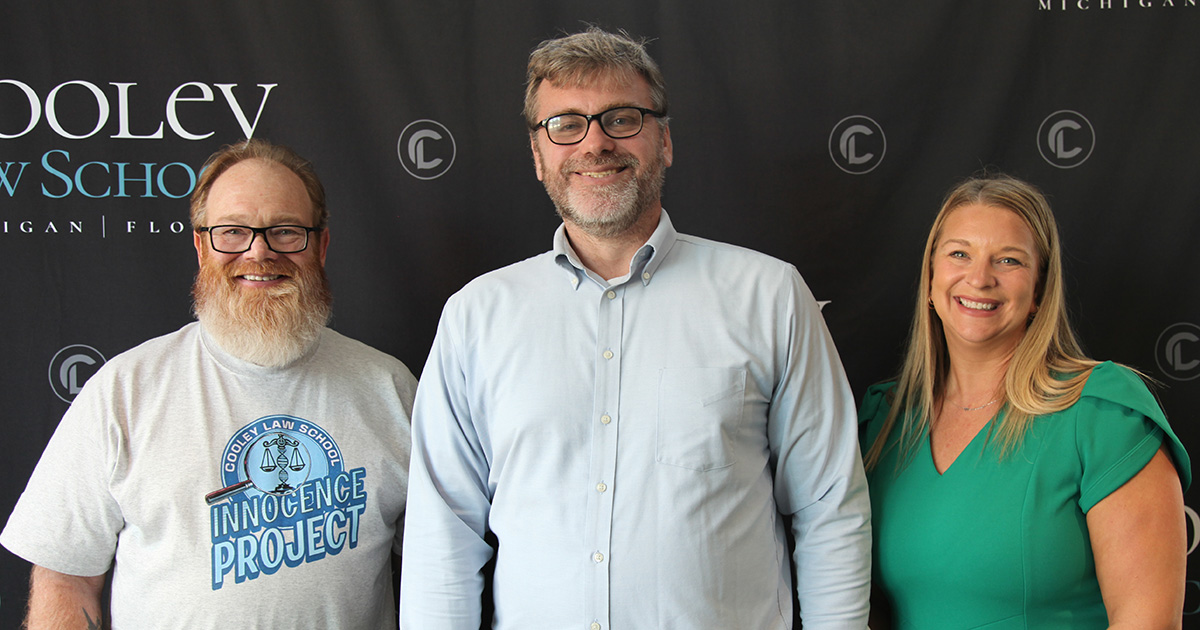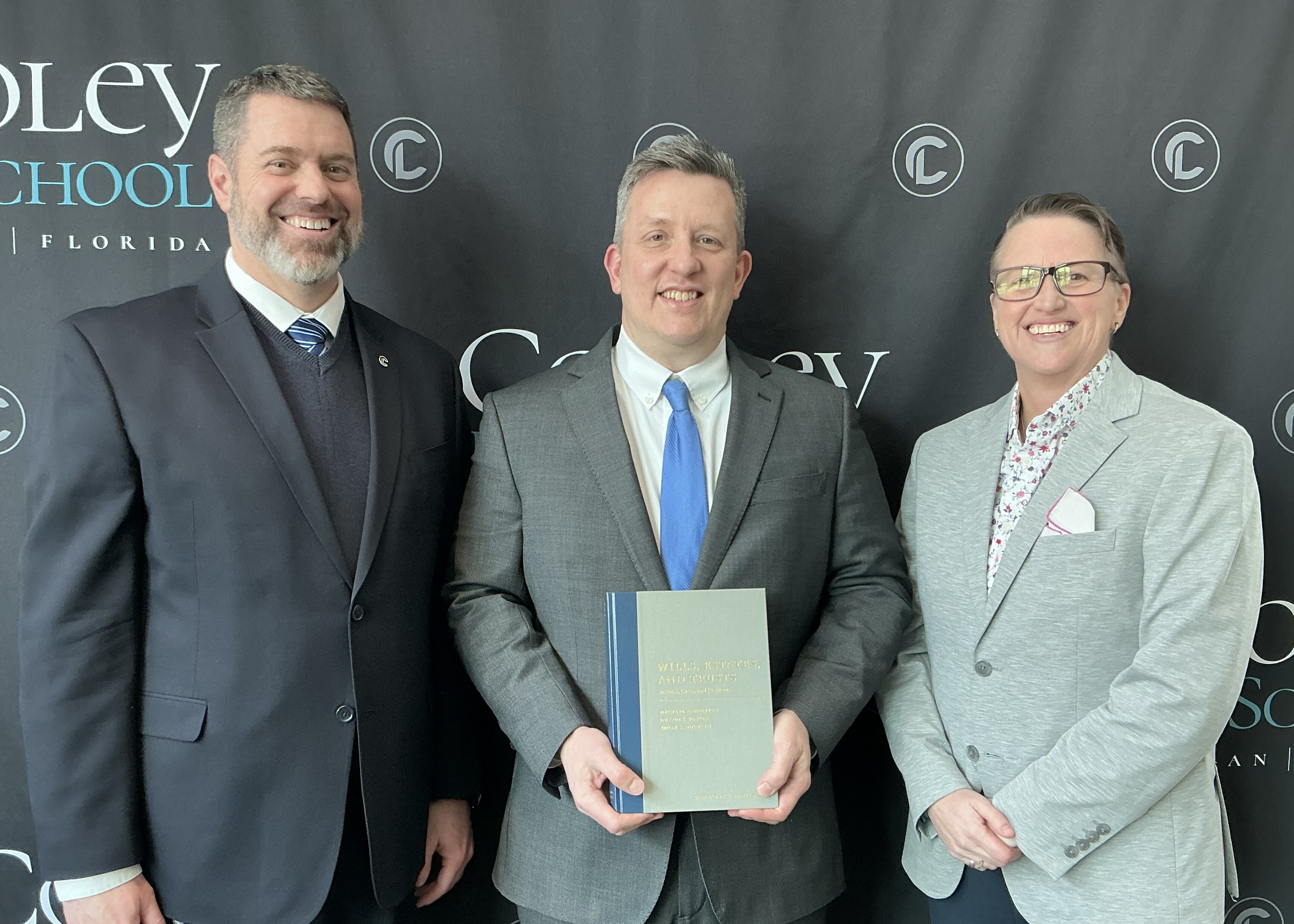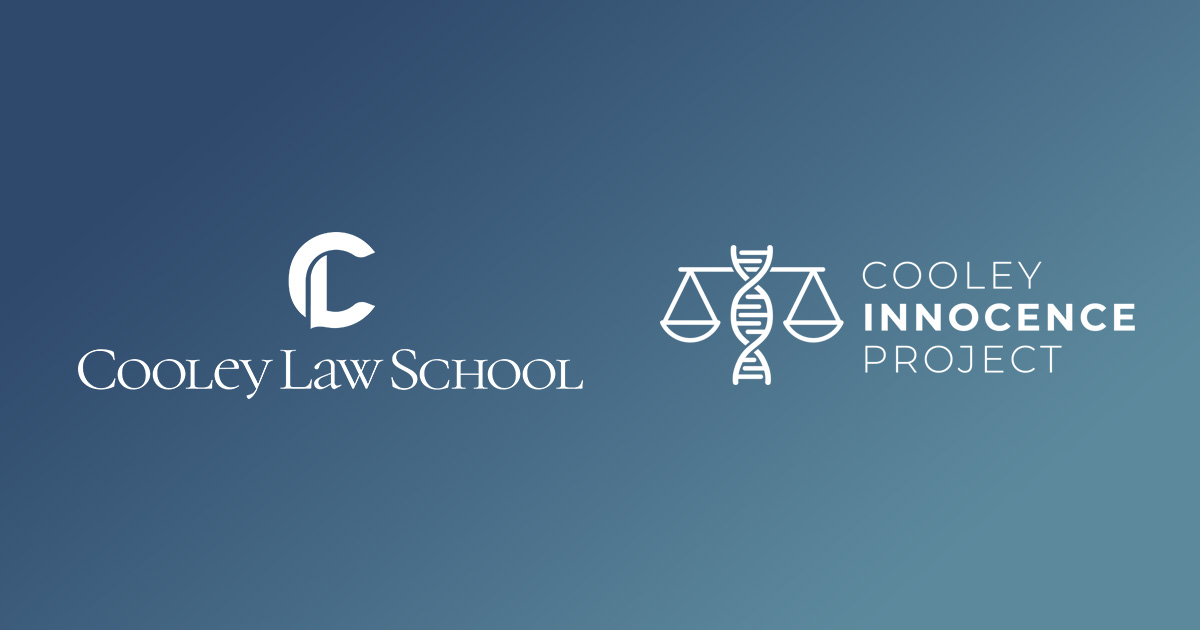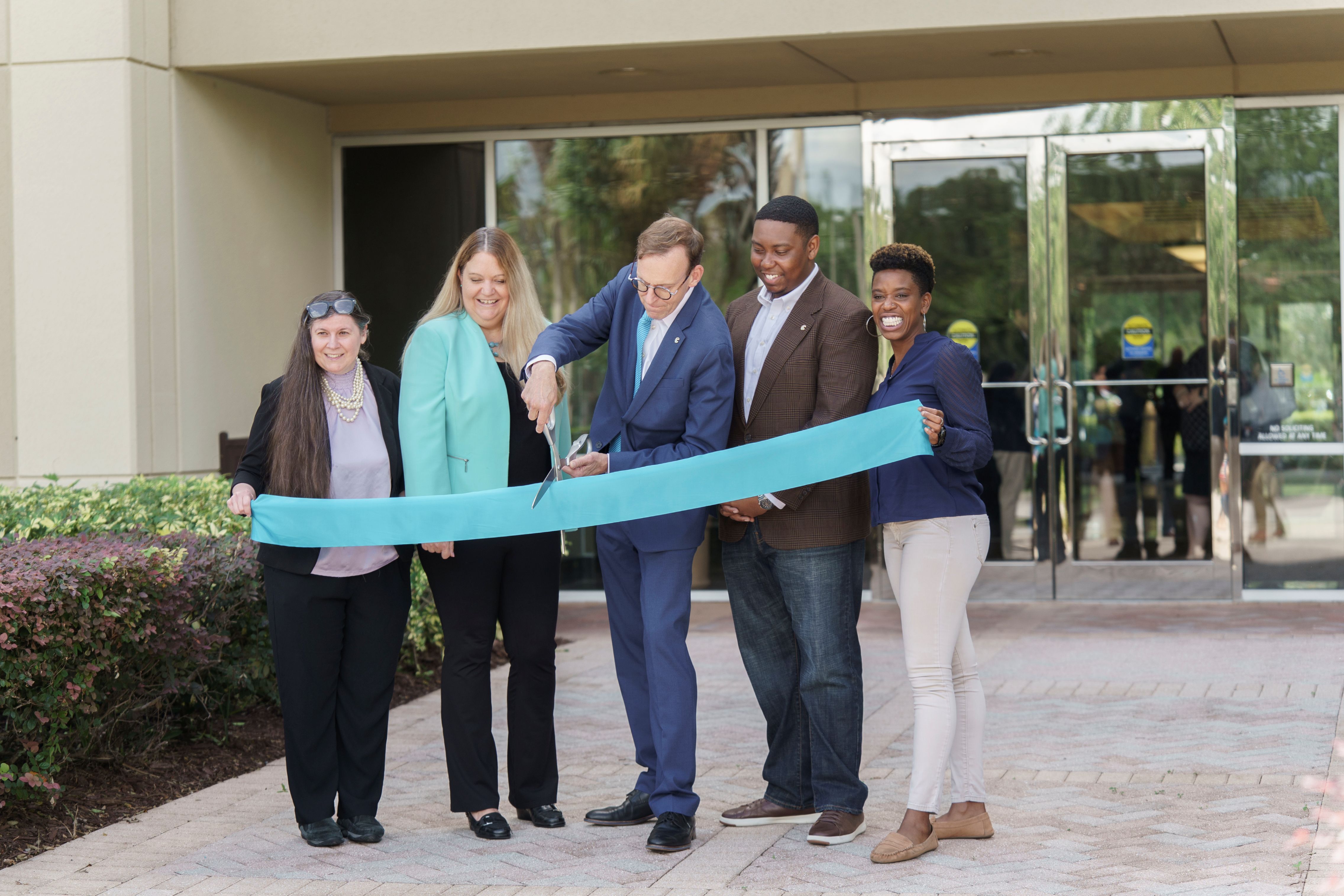
LANSING, MI — The Cooley Law School Innocence Project hosted author, legal scholar, and Cooley graduate Nathan Goetting for a meet-the-author event on July 10. Goetting, now director of the George Romney Institute for Law and Public Policy at Adrian College, discussed his recently released book, “The Supreme Court’s Actual Innocence Problem: How the Supreme Court of the United States Has Failed to Reduce Wrongful Convictions.”
In front of an engaged audience of students, faculty, legal professionals, and community advocates, Goetting explored the research behind the book and shared his belief that, despite mounting data on wrongful convictions, the U.S. Supreme Court continues to issue rulings that exacerbate systemic injustices.
“Every wrongful convictions scholar knows that there are around seven areas, which I’ll soon list, in which our criminal justice system breaks down in ways that lead to wrongful convictions,” said Goetting. “My work argues that, despite full awareness of the data on wrongful convictions, in all seven areas the Supreme Court has ruled in ways that have made the problem worse.”
Goetting emphasized how decades of scholarship and exoneration data have finally given researchers and legal experts tools to identify the systemic roots of these injustices.
“Studying the common features of exoneration cases has enabled us to do something never before possible: determine how and why the system fails,” said Goetting. “Scholarship on this subject over the past few decades has been prolific and the consensus virtually universal.”
Adding a powerful presence to the event was Gilbert Poole, Jr., a Michigan man who spent 32 years in prison for a murder he did not commit. Poole was exonerated in 2021 with help from the Cooley Innocence Project after DNA evidence excluded him as the perpetrator.
Goetting, who spent two terms working with the Cooley Innocence Project while in law school, credited the experience with shaping his scholarly path and passion for criminal justice reform. His academic career spans over 15 years at Adrian College and includes faculty appointments at the University of Toledo College of Law, where he currently teaches. He is a two-time recipient of Adrian College’s Creative Activity, Research, and Scholarship Award and has published extensively on the rights of the accused and constitutional freedoms.
The event was part of the Cooley Innocence Project’s ongoing commitment to advancing dialogue around wrongful convictions and advocating for reform through education, legal support, and community outreach.
For more information about the Cooley Innocence Project, visit cooley.edu/academics/experiential-learning/innocence-project.


